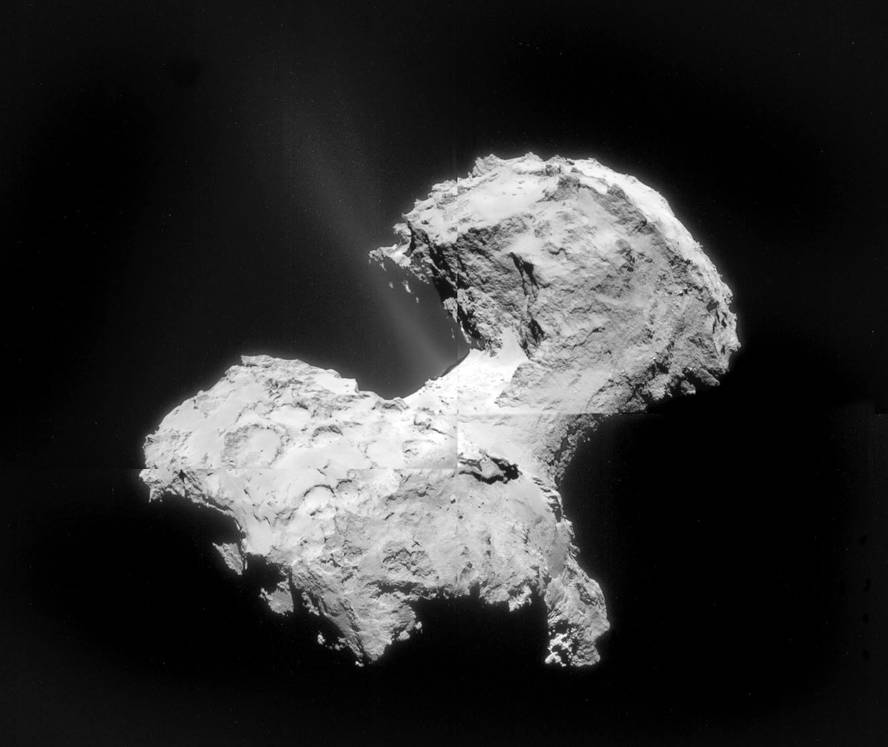Comet 67P/Churyumov-Gerasimen water is not similar to that of terrestrial oceans

According to measurements made by the Rosina-DFMS mass spectrometer of the Rosetta spacecraft, the water in comet 67P/Churyumov-Gerasimen is not similar to that of the Earth's oceans. The hypothesis that relates the origin of the oceans to the comets has lost strength.
In fact, water, in addition to normal hydrogen atoms (formed by protons and electrons), sometimes also has deuterium atoms (formed by two protons, electrons and neutrons). Thus, measuring the proportion between deuterium and hydrogen, it is possible to know whether or not the waters of two places can have the same origin.
And that's what researchers of the Rosetta mission have done, who have compared the measurements of the mass spectrometer in the comet's vapor to the Earth's water and have discovered that that proportion is totally different in both. Specifically, the deuterium/hydrogen ratio of comet water is three times higher than that of terrestrial ocean water.
The result has been somewhat unexpected, as the proportions measured so far in other comets were much more similar to those of the oceans. In fact, only one of these measurements has been direct, specifically from comet 350P/Hartley 2 (the rest were transversal), but its deuterium/hydrogen ratio is much lower, which reinforced the hypothesis that the origin of terrestrial water could be in the comets.
Now the hypothesis has been annulled. Researchers have published the study in the journal Science and suggested that asteroids may be the source of Earth's water. At the same time, it has been shown that the water composition of comets is not very homogeneous, as they can present very different proportions of deuterium/hydrogen. As they have explained, this difference may be because comets are of different origins.





